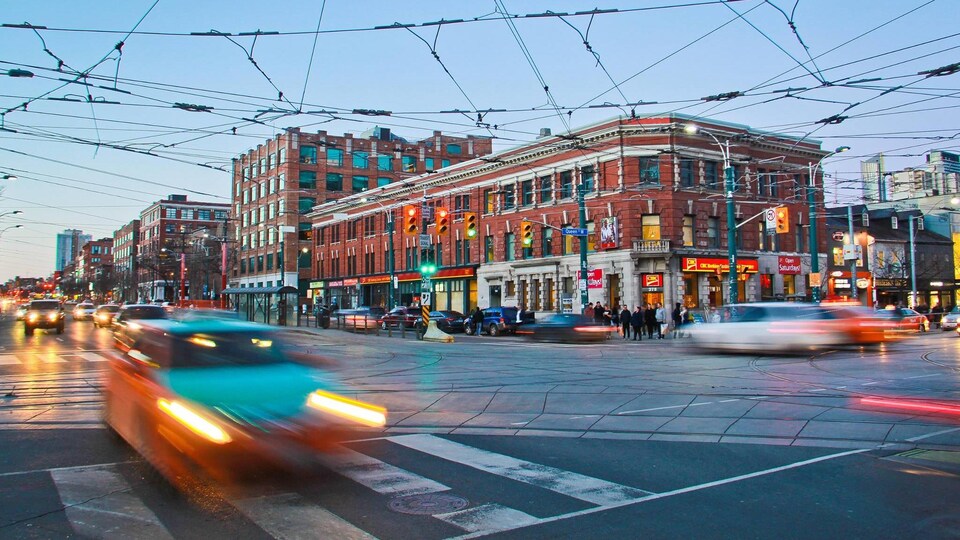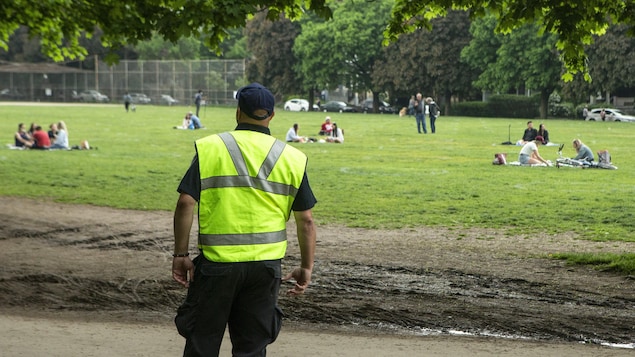We must not let our guard down, repeats Doug Ford as soon as the opportunity arises. At a time of year when the grip of winter is finally loosening, the mental health of the population is strained by the containment.
How to maintain morale while remaining lucid? Between gentle therapy and shock treatment, academic research gives us some leads.
Latin verb devote from which our vacations derive means: to be empty, free. An attitude difficult to adopt in a context of confinement where the injunctions follow one another, note in turn researchers contacted by Radio-Canada.
We would have thought that spring break would allow us to do more activities,
acknowledges Nafissa Ismail, associate professor of psychology at the University of Ottawa. The new health situation has completely clouded expectations.
Nafissa Ismail, Associate Professor of Psychology at the University of Ottawa
Photo: Courtesy of Nafissa Ismaïl
—
But after all situations are stressful because they are perceived as such
, relativizes the professor. As for the children, often all they want is time with their parents
. Would simplicity, by the force of circumstances, push to reassess the priorities of families?
We must not forget that we are living in a historic moment that our children will remember all their lives, so let’s try to give them some positive memories of this situation.
His advices? To be creative, [s’évertuer à] stay optimistic, have quiet moments, find time to participate in family activities, learn to appreciate the little moments. If we succeed, we will be able to counter stress and develop resilience that will allow us to better manage the situation.
Damage to the youngest
The deleterious effects of confinement on the morale of young people have been documented in a study (New window) carried out after the first wave of the pandemic. Almost half of those polled said they had suffered from isolation and loneliness, due to the lack of social gatherings or the closure of schools.

Research from Statistics Canada suggests that about 36% of young people were very or extremely worried about family stress due to confinement.
Photo : Getty Images / Ute Grabowsky
—
A year later, the recommendations of that study remain valid, says Dr. Mary Bartram, director of the Mental Health Commission of Canada.
It’s always a compromise between public health concerns and mental health, but also the need for social contact, she observes. This balance is always scrutinized, called into question by the health situation
.
Young people are going through a difficult time – especially children. Encouraging them to have social contacts, while respecting health measures, that will be important with this new confinement.
In his view, keeping schools open is still the best solution to make the essential socialization of young people possible. safely within an environment with monitoring of sanitary measures
.
Urban planning and well-being
Cities, too, could help provide safer meeting places, under the circumstances. Since many city dwellers are confined there, how can we make urban spaces more pleasant? asks Pierre Filion, professor emeritus at the School of Urban Planning at the University of Waterloo.

For professor emeritus Pierre Filion, cities should be rethought in the light of the pandemic.
Photo : Radio-Canada / Rozenn Nicolle
—
In high-density cities like Toronto, sidewalks are not big enough, he says. Like most metropolises, Toronto is not doing enough under the current circumstances.
At a time when city dwellers are reclaiming their neighborhood, the professor calls for an overhaul of North American philosophy in terms of town planning where it is private and interior space that dominates.
Perspectives at the antipodes
If, from a psychological point of view, the release of a few weeks authorized in Ontario offered a valve to decompress with the furtive impression of a return to normal (Ontario cares about the mental health of its people
dixit Nafissa Ismail), from an epidemiological point of view, the containment was decided far too late, denounces Timothy Sly.
We are in an emergency situation, so many people are dying!
, the epidemiologist at Ryerson University in Toronto lost his temper.
It’s not a good idea to brake hard and relax two weeks later, then brake again and again, he believes. We must think ahead.
If you want to compare with hockey, you skate according to the direction the puck will take and not where it is, otherwise it’s too late. Unfortunately, Quebec and Ontario made the same mistake. We are late and we feel the consequences.
What about the urgent need to find others other than virtually? Either way, we can let people hang out in the parks, he concedes, but no proximity within groups
.
And to convince the recalcitrant that he does not hesitate to qualify idiots finished
, he suggests that the province put up on bus shelters posters of intubated COVID-19 patients and on the verge of death.
Refuge in nature
Emotional regulation, not always obvious in an anxiety-provoking context, could also involve contact with nature, advocates psychology professor Nafissa Ismail.
First, the sun helps increase serotonin levels, she recalls, what plays a role in our mood and in regulating our emotions
.
In addition, the sounds of nature – birdsong, the rustling of the wind in the trees – have an effect very relaxing
. These are primitive sounds that have been present throughout our evolution, says the professor, comforting sounds and can help us forget the situation in which we find ourselves.
On vacation, you also have to turn your back on the raked paths of lives on a line and listen differently.
–

